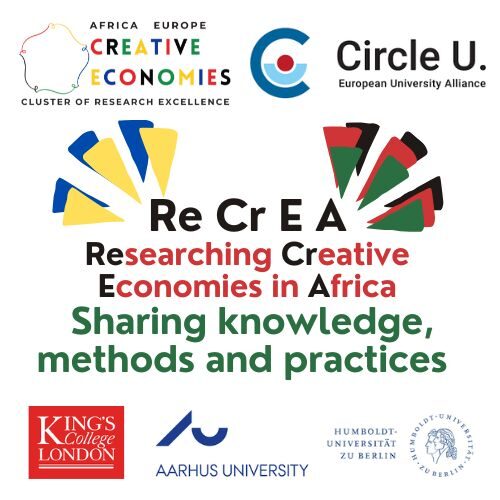
Researching creative economies in Africa: sharing knowledge, methods and practices
ReCrEA: Researching creative economies in Africa: sharing knowledge, methods and practices is a collaborative project between King’s College London, Aarhus University and Humboldt University of Berlin. It aims to bring together current research – from a range of disciplines – that explore the value, workings and impact of creative economies in Africa. Research on creative economies (CE) in Africa is limited and fragmented across different disciplines, making it hard for academics to connect and establish shared frameworks and practices. Furthermore, research on CE has been narrowly focused on the Global North and has not placed enough value on cultures, heritage, innovations and ideas from the Global South. So, the proposed project aims to create a network of activities to rebalance this perspective by supporting research on Africa to be shared and made more visible, giving space to PhDs and ECRs (early career researchers) to interact and share ideas.
The project also recognises that CE are essential to innovation, technology and economic development and are cornerstones of sustainable development, community engagement and dialogue across cultures and generations. The project has 3 objectives:
- create an opportunity for academics across our Universities and Circle U to share their research on CE, prioritising contributions from ECR and scholars from the global majority, including opportunities for mobility amongst the partners.
- create opportunities for PhD students and ECRs to collaborate through online workshops, to present ongoing research, present methodological questions, and reflect on their practice in a supporting and collaborative network.
- publish a brief manifesto summarising some of the challenges researchers face and some of the research questions and themes that need addressing by new research projects and future PhDs.
The activities will include a mix of online-only seminars and 3 hybrid events; all will be accessible and open to everyone.
OUR ONLINE SEMINAR SERIES ARE OPEN TO ALL. REGISTER TO ATTEND ONLINE
FORTHCOMING
Sixth Seminar: REEL HISTORY: EXPLORING NIGERIAN HISTORICAL FILMS AS WINDOWS INTO THE NATION’S PAST
26th November 2025, 2pm (London time) on Zoom
Register via Zoom here: https://us02web.zoom.us/webinar/register/WN_vzfx56P_T521dMJ6owQLTg
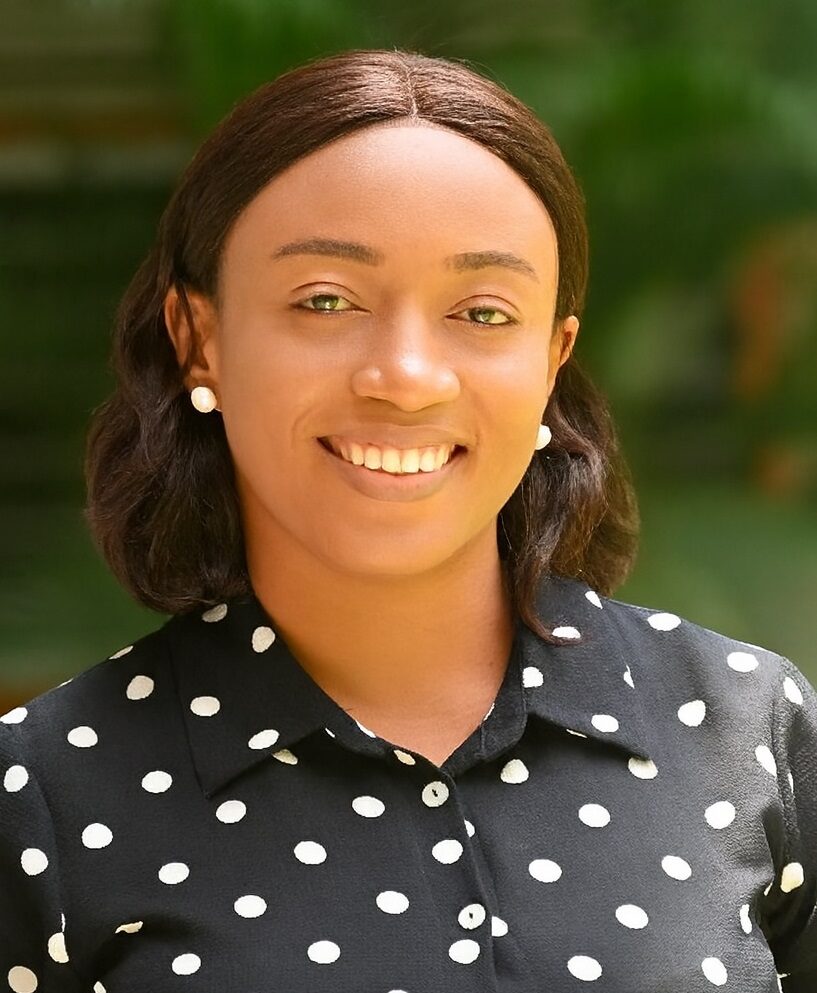
Folakemi Ogungbe, PhD, is a Senior Lecturer in the Department of Film and Multimedia, School of Media and Communication, Pan-Atlantic University. She holds a PhD in Film Studies from the University of Ibadan and is a 2025–26 Fellow of the University of Michigan African Scholars Program.
Abstract: This paper reconsiders Nigerian historical films as sites of memory and civic negotiation, arguing that while scholars such as Robert Rosenstone contend that film “does” history through the distinctive language of cinema, the Nigerian context demands a broader framework—one attentive to material, political, and institutional constraint. In a film culture marked by limited funding, infrastructural deficiencies, weak archival systems, and state apathy toward history, the act of “doing history” becomes as much about production survival as aesthetic vision. These structural constraints not only shape the filmmaking process but also determine what kinds of histories can be represented and how their cinematic form invites—or limits—public recognition of them as “real history.” Through close readings of Invasion 1897, October 1, and ’76, supported by interviews and ethnographic insights, the paper explores how filmmakers reconstruct collective memory under conditions of scarcity and censorship. Drawing on frame theory (Bateson, Goffman, Entman) and theories of collective memory (Halbwachs, Assmann), it examines how these films define historical events, assign causality, and shape public understanding—not merely as artistic interpretation but as civic intervention. By situating Nigerian productions within wider African and diasporic traditions—from Sembène to Gerima—the study reveals that Nigerian historical cinema performs a double labor: aesthetic re-imagination and historical redress. “Reel history,” therefore, emerges not only as cultural archive but as a practice of resistance—an attempt to remember when the state forgets.
Biographical Note: Folakemi Ogungbe, PhD, is a Senior Lecturer in the Department of Film and Multimedia, School of Media and Communication, Pan-Atlantic University. She holds a PhD in Film Studies from the University of Ibadan and is a 2025–26 Fellow of the University of Michigan African Scholars Program. Between March 2022 and March 2023, she served as Creative Partnerships Coordinator for the African Hub for Sustainable Creative Economies (AHSCE), Lagos Hub—a collaborative research initiative involving King’s College London, the Universities of Southampton, Lagos, Nairobi, and Witwatersrand. From 2020 to 2023, she worked at the Nigerian Film Corporation as Head of the Digital Media Unit and Technical Assistant to the Managing Director/Chief Executive. During this period, she also taught at the National Film Institute, served as adjunct faculty at the NTA Television College Jos (2021–2022), and was a member of the organizing committee for Zuma Film Festival (2019–2023), overseeing digital media coverage and protocol. Dr. Ogungbe serves on the editorial board of Fulgent: Journal of Film and Video (NFI). She has served as a juror at the AM-FM Festival in Manitoba since 2024, the Kano Indigenous Language Film Festival (KILAF, since 2022), the Travelling International Students Film Festival (ISFF, Okada, since 2023), and the Sacramento Film Festival in 2024. As a filmmaker, she co-wrote, directed, and produced Mirrors (2025), a six-part film serial for the School of Media and Communication, Pan-Atlantic University. She also wrote and directed Yayi: A Shining Light (2022), a documentary commissioned by the Nigerian Film Corporation. She is currently co-writing a feature film titled “Jollof Wars” with Kwame Boadi, a Ghanaian filmmaker. Her research has been published in local and international outlets, including Industry and Higher Education, the Journal of African Film and Diaspora Studies, Fulgent: Journal of Film and Video, and several edited volumes. She is a Fellow and elected Executive Committee member of the Lagos Studies Association, and has presented papers at national and international conferences, including the International Federation for Theatre Research (IFTR) in Sweden. Before academia, she worked for eleven years in a commercial bank in Nigeria, rising to mid-management before quitting.
PAST SEMINARS
Fifth Seminar: Globalisation, Commodification and Cultural Production in Africa: Contemporary Theatre in Sierra Leone
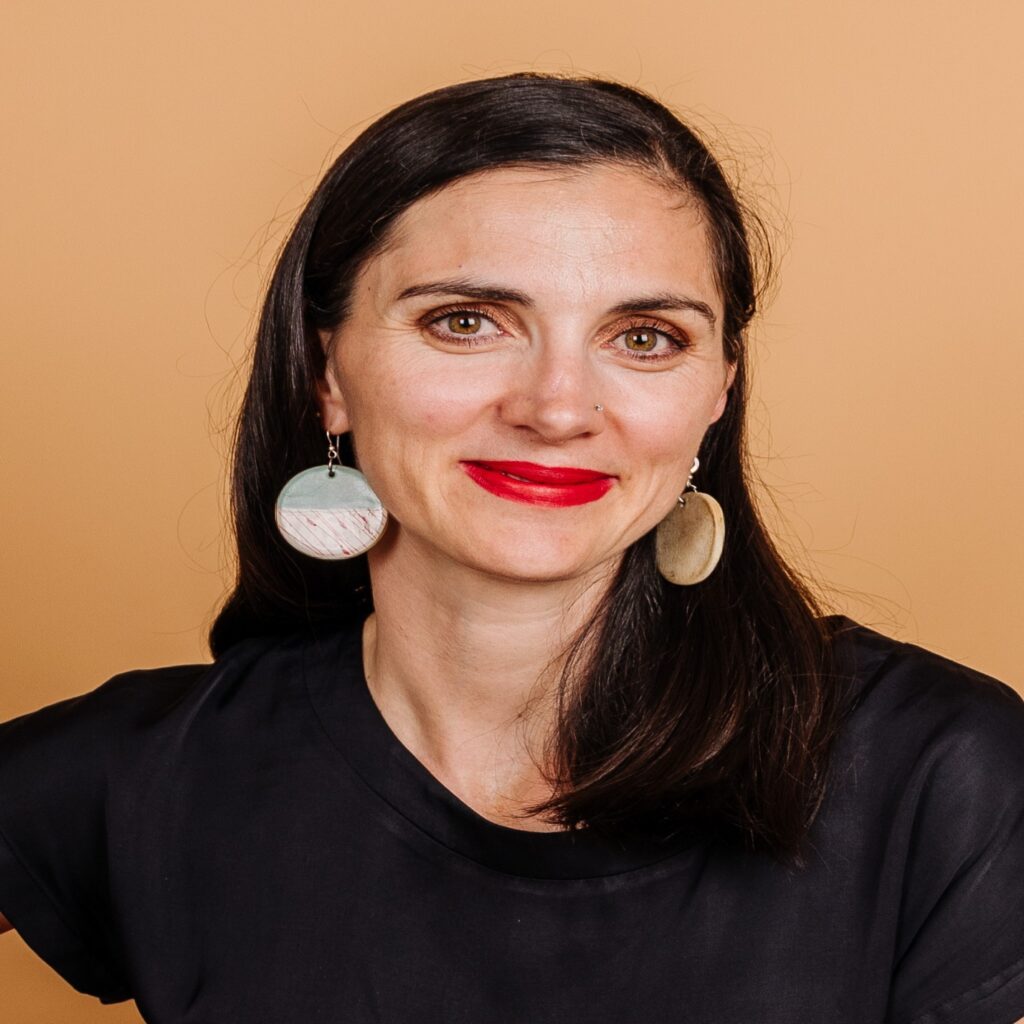
Dr Kathrin Schmidt is a cultural and creative sectors consultant, researcher and writer, and member of the UNESCO Culture|2030 Indicators Expert Facility
12th November 2025, 1pm (London time) on Zoom
Read more …
Abstract: This seminar focuses on contemporary Sierra Leonean theatre and the political economy of its aesthetics and ecology, especially within the context of local and global flows of people, media, images, technologies, finance and ideas. Combining the analysis of theatre and its aesthetics with its policy, structural and institutional context, this seminar highlights the interconnectedness and relationships between the micro and the macro-levels of cultural production, between the local and the global and between aesthetics, politics, policy, governance structures, institutions and history. Moving beyond aesthetics and theatre as an art form, the presentation shows in particular how theatre, as a form of cultural production and a cultural industry, and its wider ecology including cultural policymaking are influenced and shaped by the international development industry, international cultural organisations and international cultural relations. As such, the seminar also links particular findings within the context of Sierra Leone to larger issues of contemporary local cultural production in relation to globalisation, commodification, the “global creative economy”, culture and sustainable development, international relations and decolonisation.
Biography: Dr Kathrin Schmidt is a cultural and creative sectors consultant, researcher and writer, and member of the UNESCO Culture|2030 Indicators Expert Facility, with extensive experience working on strategy, policy, research and evaluation projects in the arts, heritage and creative sectors. With a career of almost 20 years spanning cultural management, research and consultancy, she has in-depth and nuanced understanding of these different aspects of cultural work and strongly believes in the importance of strengthening the relationship between cultural practice, research and policymaking. Over the last decade, her assignments with organisations such as UNESCO, the EU, the British Council, the Goethe Institut, World Cities Culture Forum and the Wellcome Trust have focused on international cultural cooperation and culture and development programmes, cultural policy and strategies, the role of culture in sustainable development and global stability, sector analyses and development, programme design, monitoring and evaluation as well as mapping and impact studies. Dr Schmidt also is a regular speaker at conferences and a guest lecturer at universities in Europe and Africa.
Fourth Seminar: Nigerian Creativity and Global Modernity: Moving Beyond Decolonisation
Dr. Bea Gassmann de Sousa is a British Academy Postdoctoral Fellow at the UCL School of European Languages, Society and Culture, Centre for Interdisciplinary Studies in London.
21st October 2025, 5:30-7.00pm In Person (King’s College London)
Read more …
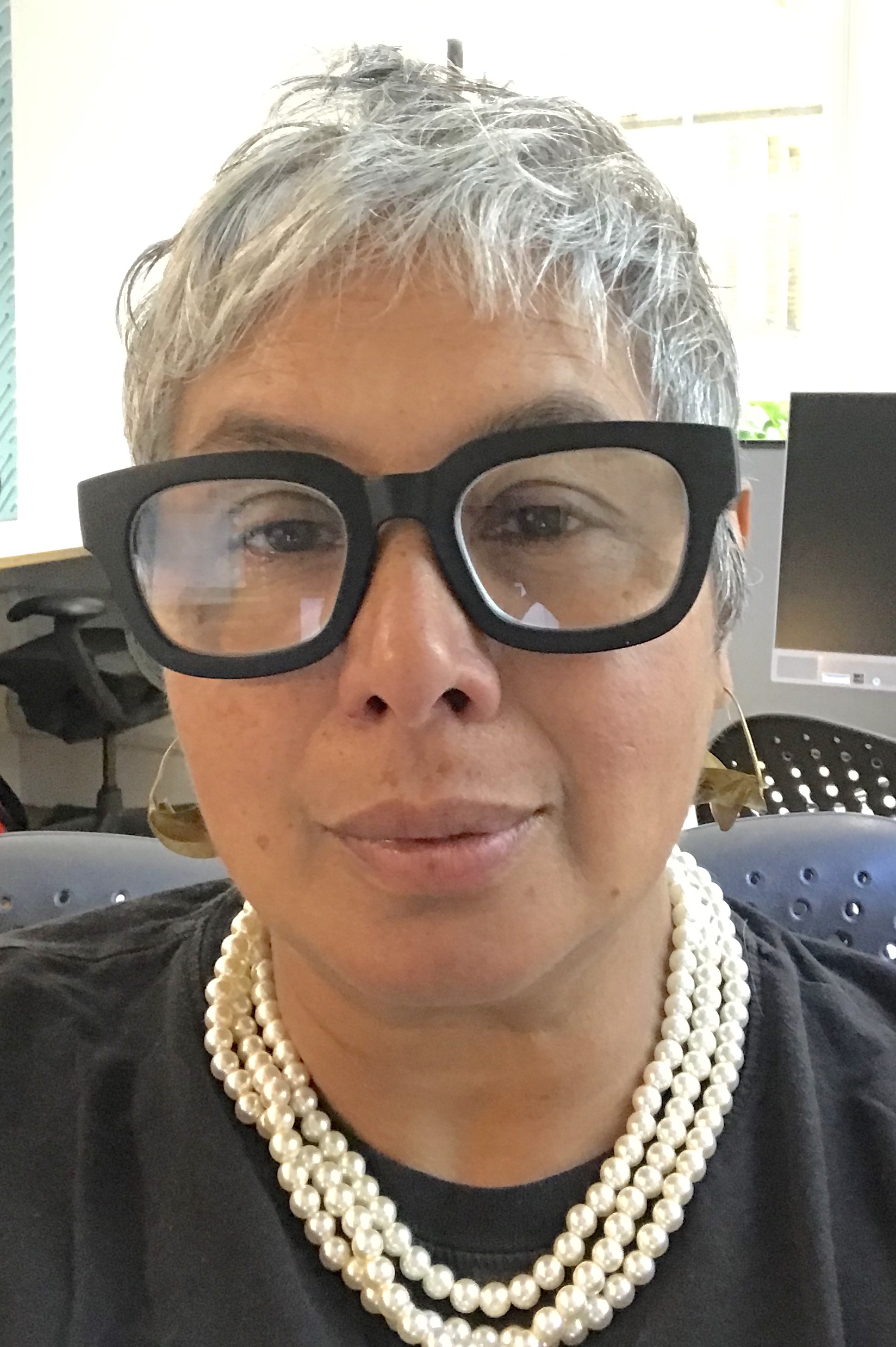
Dr. Bea Gassmann de Sousa is a British Academy Postdoctoral Fellow at the UCL School of European Languages, Society and Culture, Centre for Interdisciplinary Studies in London.
Abstract: The in-depth examination of archives, inner-African networks, and scholarly research has exposed the situatedness of Nigerian modern art and its epistemological roots, which fundamentally challenge the Eurocentric idea of modernity. In a post-northern approach this seminar introduces multiple ways of seeing, understanding and categorising Nigerian culture in the global context. It introduces the trials and rewards of researching pre-Independence Nigeria. The seminar will share how modern cosmopolitan artists defined their subjective Africanness, and how they opposed their depiction in European modernism. Artists and the arts have always been fundamental to Nigeria’s anti-colonial ontology and they played a foundational role in shaping Nigerian nationalism. Looking at contemporary developments and the current blockbuster exhibition Nigerian Modernism at Tate Modern, how does Nigerian historical culture shape the global social ecology now? The seminar will look at some of the recent successes and challenges of institutional representations of West African culture and thought systems in both continents.
Biography: Dr. Bea Gassmann de Sousa is a British Academy Postdoctoral Fellow at the UCL School of European Languages, Society and Culture, Centre for Interdisciplinary Studies in London. She is collaborative research advisor for Tate Modern’s Nigerian Modernism exhibition October 25-May 26, part of the advisory group for the Yinka Shonibare Foundation’s Re-assemblages programme in Lagos, Nigeria and a member of the British Academy Publishing and Conferences Committee. Her specialism is the methodical analysis of pre-Independence West African written and pictorial archives and the equitable contribution of West African scholarship to global modernity. She has just completed the draft of her first book: “On the Sharp Edge of Modernism: Art and Post-Traditionalism in early Twentieth Century Nigeria”. She is an active member of the “Black Europe” research group at UCL SELCS and regularly speaks at seminars.
Third Seminar: Gender and cultural regeneration in indigenous drumming in Ghana: towards a gender-inclusive, regenerative cultural policy rethinking
Dr Madinatu Bello from the Department of Theatre and Film Studies, University of Cape Coast, Cape Coast, Ghana
3rd September 2025, 1PM (BST)
Watch the video on our YouTube channel soon:
Read More…
This paper advocates for gender inclusivity in indigenous drumming activities in Ghana, highlighting its significance for cultural regeneration. Indigenous drumming in Ghana, an essential cultural practice, has historically marginalised women due to patriarchal traditions. However, this phenomenon is yet to receive scholarly attention. Drawing on the qualitative approach, the paper relied on the 2004 cultural policy of Ghana, participant observation, and interviews with female master drummers to interrogate gender discrimination in cultural policy and indigenous drumming practices, as well as their influences on the experiences of female master drummers. The goal is to propose a more gender-inclusive, regenerative cultural policy. Findings reveal significant barriers faced by women in participating in drumming, accessing leadership roles, and training in drumming spaces. Although recent shifts indicate growing female participation, especially in urban areas, these barriers persist. Findings further highlight the need for a rethinking of cultural policy to dismantle these patriarchal barriers and promote gender inclusivity, ultimately supporting sustainable cultural regeneration
Second Seminar: The evolution of Kenya’s animation landscape
Prof Paula Callus, Bournemouth University (UK) and Mr Alfred Muchilwa, Creative Director (Nairobi)
31st July 2025
Watch the video on our YouTube channel: https://www.youtube.com/watch?v=q1UnNCLYUeQ
Read more …
Abstract: In 2004, UNESCO East Africa launched Africa Animated!, an initiative aimed at building animation capacity across the Sub-Saharan region. The focus was to design a means to create and support the development of children’s content for television broadcast in a pre-digital or pre-YouTube world. Through a series of four-week artist residencies held in Kenya, Zanzibar, and South Africa, the project trained local creatives in animation techniques, with a focus on producing culturally resonant stories for African audiences (UNESCO, 2005). At the time, Kenya’s creative industry was in its formative stages—characterized by limited access to digital tools, minimal internet infrastructure (Nyabola, 2018), and artists who relied on improvised workflows and community-driven experimentation.
Despite these constraints, many of the early participants, including independent animator Alfred Muchilwa, went on to establish vibrant production networks and contribute to the growth of the animation and digital media ecosystem in Kenya and beyond. Today, Nairobi is home to a generation of digital storytellers producing everything from indie computer games with alien invasions in the city, to animated folktales such as How the Leopard Got Its Spots, satirical puppet shows echoing Spitting Image, Afro-futurist worlds and more recently GenAI-powered visual activism.
This talk, co-presented by Prof. Callus and Alfred Muchilwa—both participants in the original Africa Animated! workshops—offers a longitudinal reflection on the evolution of Kenya’s animation landscape over the past 20 years. Drawing from firsthand experience, case studies, and critical scholarship on African media industries, we trace the creative, political, and technological transformations that have shaped the field. We ask: how have artists adapted to changing platforms, audience expectations, and funding models? And what does the future hold for Kenyan animation in the age of generative AI?
Alfred Muchilwa studied design at the University of Nairobi and developed foundational skills in animation through UNESCO’s Africa Animated! Workshops where he produced several films that were screened in international animation festivals including The Hiroshima Animation Festival for Animation and International TrickFilm Festival amongst others. He later served as a lead animator on Tingatinga Tales which was East Africa’s first locally produced animation series for global audiences. He spent close to a decade teaching multimedia and animation production at The Africa Digital Media Academy in Rwanda, where he helped produce the country’s first locally made animated season for broadcast. Now, as a senior art director, he creates impactful tactical media campaigns alongside a team of talented creative and marketing professionals.
Paula Callus is a Professor at the National Centre for Computer Animation, Faculty of Media and Communication, Bournemouth University. She has lead two AHRC funded research projects, ArtoP: The Visual Articulations of Politics in Nigeria, and ReSpace (Reanimating Contested Spaces): Designing Participatory Civic Education for and with Young People in Kosovo and Rwanda. Her research expertise is in Sub-Saharan African animation, the socially engaged arts and Global South. Callus has worked as a consultant and educator on the UNESCO Africa Animated projects. She was BFX Conference director for two years and was part of an AHRC Network for Development grant, e-Voices, that was looking at marginalization and the use of digital technologies, curating an exhibition, and running workshops with artists. She has also given a number of guest talks at institutions such as the V&A Museum, and is a invited panellist for the Lumen Digital Art Prize and the Maltese Film Commission Grants.
First Seminar: Innovation, Indigenous Knowledge and Africa’s Creative Economies
Prof. Enyinna Sodienye Nwauche, Faculty of Law University of Fort Hare, Eastern Cape, South Africa
15th May 2025
Watch the video on our YouTube channel: https://youtu.be/WH4G68gk620
Read more
In this presentation, Prof. Nwauche reflects on the practice and potential of a sustainable partnership between indigenous knowledge and Africa’s creative economies in addressing Africa’s innovation emergency. In particular, he addresses issues of regulatory incoherence and convergence as a principal factor in addressing Africa’s dismal innovation performance.
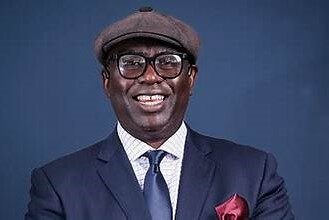
Enyinna Sodienye Nwauche is a law professor at the Faculty of Law University of Fort Hare, East London. He previously taught at Rhodes University Grahamstown, the University of Botswana, and the Rivers State University of Nigeria. He is a rated NRF scholar and has held fellowship and visiting positions in the United States, Canada, Germany, the United Kingdom, and Austria.
He was Chair of the Coordinating Committee of the African Network of Constitutional Lawyers (ANCL), a member of the Executive Committee of the International Association of Constitutional Law (IACL), and former Director General of the Nigerian Copyright Commission. He has to his credit many international peer-reviewed books, including The Protection of Indigenous Knowledge in Africa (Springer 2025).
